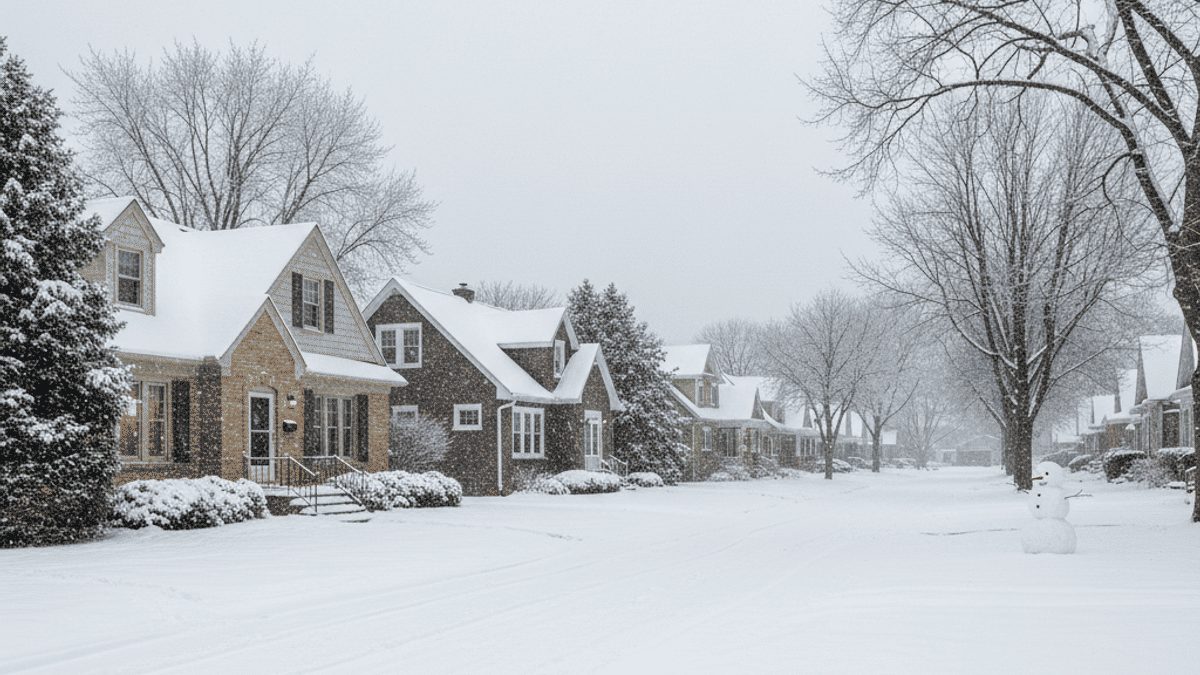Pull up a chair, grab your favorite mug, and let’s talk timelines. You bought in McFarland because the village felt right, the commute worked, or the lake called your name. Now you are staring at Zillow late at night, wondering if it is too soon—or maybe too late—to cash in on that decision. How long should you own a home before selling? McFarland owners ask that question every single week, and the answer is not a neat one-size-fits-all line in the sand. It is a mix of math, market moods, and plain old life curveballs.
Below you will see the numbers, a few local stories, and some easy-to-follow guardrails so you can decide if this is your year to hang a For-Sale sign or if you should settle back in and let the equity grow.
Is five the magic number or just a catchy rule?
Every real-estate forum loves to toss around that classic five-year rule. Stay put for at least half a decade, they say, because:
- Closing fees, agent commissions, and moving costs eat the first chunk of your appreciation.
- Mortgage interest loads the front end of your amortization schedule. Translation: in year one you mostly pay interest instead of carving down the principal.
- Equity builds slow and steady, not overnight.
Five years gives you room to outpace those costs and still walk away with a profit.
Yet some folks in McFarland sell after three because a job shifts across the state line and they still leave closing with a smile. Others hang on twelve years because they keep tinkering with upgrades and plan a retirement funded partly by that payoff. So treat five years as a helpful speed-limit sign, not a legal mandate.
A quick peek at recent McFarland data
Talking about “the market” in broad strokes misses the local flavor. Let us narrow the lens.
- Median single-family sales price in McFarland hovered around $455,000 at the end of last year, up roughly eight percent from the previous twelve months.
- Average homeowner tenure according to county tax records sits near 6.7 years. In short, plenty of residents are holding past that five-year guidepost.
- Days on market dipped under two weeks during the spring surge yet stretched toward a month by mid-autumn. Timing clearly matters.
- Annual appreciation over the past decade lands just above six percent. Some years soared past ten, a couple cooled under three, but six is the blended pace.
Plug those figures into a back-of-napkin equation: A $350,000 purchase five years ago, rising six percent per year, lands near $469,000 today. Even after paying commissions and transfer tax you would see meaningful gain. This is why the tenure averages around seven years; residents in McFarland notice the compounding benefits and ride them a little longer.
Counting the dollars, cents, and headaches
Before you plan a photo shoot with fresh mulch and perfect staging, line up the expenses you will face on closing day so you know the break-even point.
- Real-estate commission
McFarland sellers typically budget five to six percent of the sales price. On that $469,000 example above, you are looking at about $25,000. - Seller concessions
Maybe the buyer wants help covering points or inspection repairs. Local averages sit under one percent, but older HVAC surprises sometimes push that higher. - Transfer tax and title fees
Factor another one percent combined. - Capital-gains tax
If this has been your primary residence for at least two of the last five years you may exclude up to $250,000 in gains if single, $500,000 if married filing jointly. Sell before that two-year mark and the IRS wants its slice. - Mortgage payoff and prepayment charges
Most fixed-rate loans in Wisconsin carry no prepayment penalty, yet double-check your note. You will also need to square up any escrow shortages. - Moving, storage, and interim housing
Even the thriftiest DIY move eats into your net. Pods, trucks, boxes—they add up.
List every line item then compare it to your projected equity. If the math shows a slim gain or break-even, hold tight a bit longer, spruce up the landscaping, and let another season of appreciation push you into clearer profit.
Renovation math, also known as the HGTV trap
McFarland homeowners love weekend projects. New decks, finished basements, or those trending black-frame windows. Improvement can bump value, just not always dollar for dollar.
You might pour $60,000 into a kitchen and see buyers offer forty back. That difference stings unless you enjoyed cooking in that gleaming space for a few years first. Rule of thumb here: renovations pay best when you plan on staying at least three more years. Shorter than that and stick to smaller updates with broad appeal. Think fresh paint, modern fixtures, or a bathroom vanity swap. Those low-cost tweaks punch above their weight on listing photos.
Life happens faster than spreadsheets
Numbers guide decisions, but real life is messy. Some reasons to sell sooner than planned:
- Growing household or, conversely, an empty bedroom count you no longer want to heat and clean.
- Job relocation to the Madison tech corridor or even further afield.
- Divorce, inheritance, health changes. Not fun topics yet they move timelines more than any data point.
- Desire to unlock equity for another investment, maybe a lake cabin two counties over.
Notice how none of these revolve around the ideal appreciation window. When life calls the shots, you adapt, then work with the market rather than wait for perfect conditions.
Market mood swings and seasonality
McFarland real-estate cycles often mirror Madison yet move a little earlier in spring. Snow thaws, robins start chirping, and buyers flood open houses looking for easy commutes along Highway 51. Listing in late March often yields multiple offers by April before the bigger city listings hit peak volume.
Interest rates also steer buyer demand. A one-percent bump in mortgages can shrink purchasing power by roughly ten percent. If you believe rates will rise through next winter, an earlier sale can capture larger buyer pools. On the flip side, if economists predict a drop, hanging on could widen that pool later.
Keep an eye on:
- Federal Reserve meeting notes.
- Local inventory stats posted each month by the Realtors association.
- Days-on-market trend, a leading indicator before prices shift.
Pros and cons of selling now versus waiting
Selling Now
- Tap into current appreciation while inventory sits low.
- Free up cash for that promotion in Milwaukee you must accept this summer.
- Avoid potential interest-rate spikes diminishing buyer enthusiasm.
But…
- You pay commission sooner.
- You may owe capital-gains tax if under two-year occupancy.
- Short notice moves create stress and storage bills.
Waiting One to Three Years
- More principal paid, more equity banked.
- Time to finish cost-effective upgrades like energy-efficient windows which buyers love.
- Possibility of recapturing seller leverage if market cools and later rebounds.
Yet…
- Risk of price plateaus during economic slowdowns.
- Maintenance bills keep rolling. Roofs do not wait for perfect timing.
- Life plans might drift and that restless feeling lingers.
Quick decision matrix
Grab a notepad, jot a checkmark on each line that feels like your reality.
- I have lived in the home at least two years.
- I can net enough after commission and taxes to cover a twenty-percent down payment on my next place.
- Inventory in my price bracket is under two-months supply.
- Mortgage rates sit below six percent, fueling buyer eagerness.
- Personal move-out timeline is flexible by ninety days.
Three or more checkmarks? You are in a strong spot to list. Fewer than three and you might benefit from another lap around the sun.
Stories from your neighbors
Jackson Street bungalow: The owners bought a tidy two-bed at $265,000 in 2021. A surprise twins announcement made them crave extra footage. They sold after twenty-eight months, netted $62,000, and rolled it straight into a four-bed down the block. Even without hitting the five-year mark they won because demand for entry-level homes stayed fierce.
Stacey Road colonial: Purchased in 2015 for $375,000. They refinanced twice, finished the basement, waited out a mild dip in 2018, then sold last fall for $519,000. Eight years of tenure let them dodge capital-gains tax and pocket more than $140,000 after commissions and payoff.
Foggy Bottom townhouse: Investor bought pre-construction in 2020, rented it, and decided to exit after one lease cycle. Rental income covered costs but the early sale triggered depreciation recapture and higher taxes, proving that quick flips on buy-and-hold products can eat profit.
A few overlooked signals
Home insurance climbs when roofs age past twenty years. If yours is creeping there, budget that tear-off or market the house before the premium spike.
Property-tax assessments in Dane County adjust regularly. A large hike can nudge buyers toward newer subdivisions unless your price already reflects that tax load.
Local school redistricting occasionally happens. Even if you do not have children, boundary changes influence resale value. Check school board agendas so you are not blindsided.
Tips to prep while deciding
- Gather utility bills for the last year. Buyers ask, you deliver without scrambling.
- Order a pre-inspection. It costs a few hundred dollars and reveals hidden issues so you either repair or price accordingly.
- Stash six months of photo logs for your garden. Summer blooms speak louder than dormant stems on November showings.
- Declutter one closet per weekend. Future you will thank today you.
Each tiny move inches you nearer to ready status, even if you end up staying longer.
Ready to make a move?
So, how long should you own a home before selling? McFarland shows that the sweet spot usually lands between five and eight years, yet the right answer lives in your budget, your goals, and your gut. Do the math, watch the local stats, listen to life’s nudges. When three or more of those angles point toward “sell,” trust the signal.
Want a custom net sheet or just need to vent about leaky gutters? Reach out to a local real-estate pro you trust and let them run the numbers for your exact address. You deserve clear intel, not guesswork.
Whichever path you choose—list soon or linger longer—keep one thing front-of-mind: owning in McFarland has already been a smart chapter of your story. The next chapter is yours to write.













